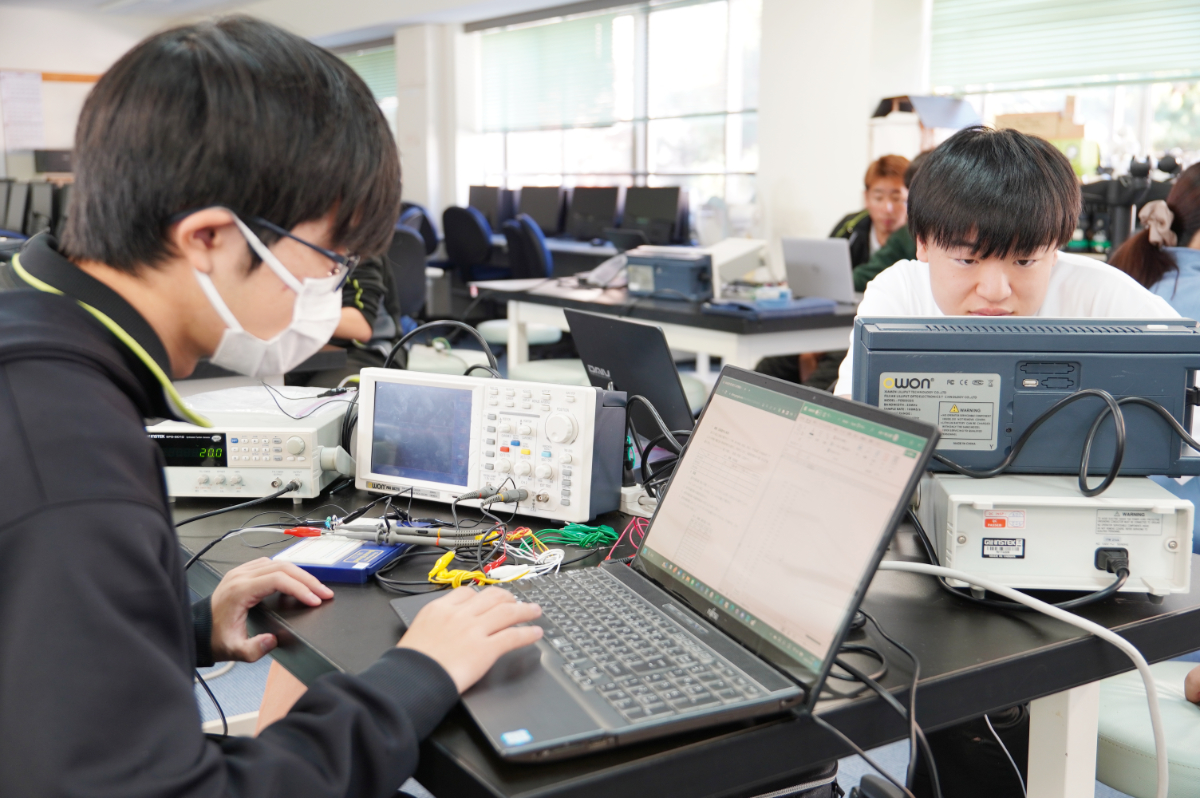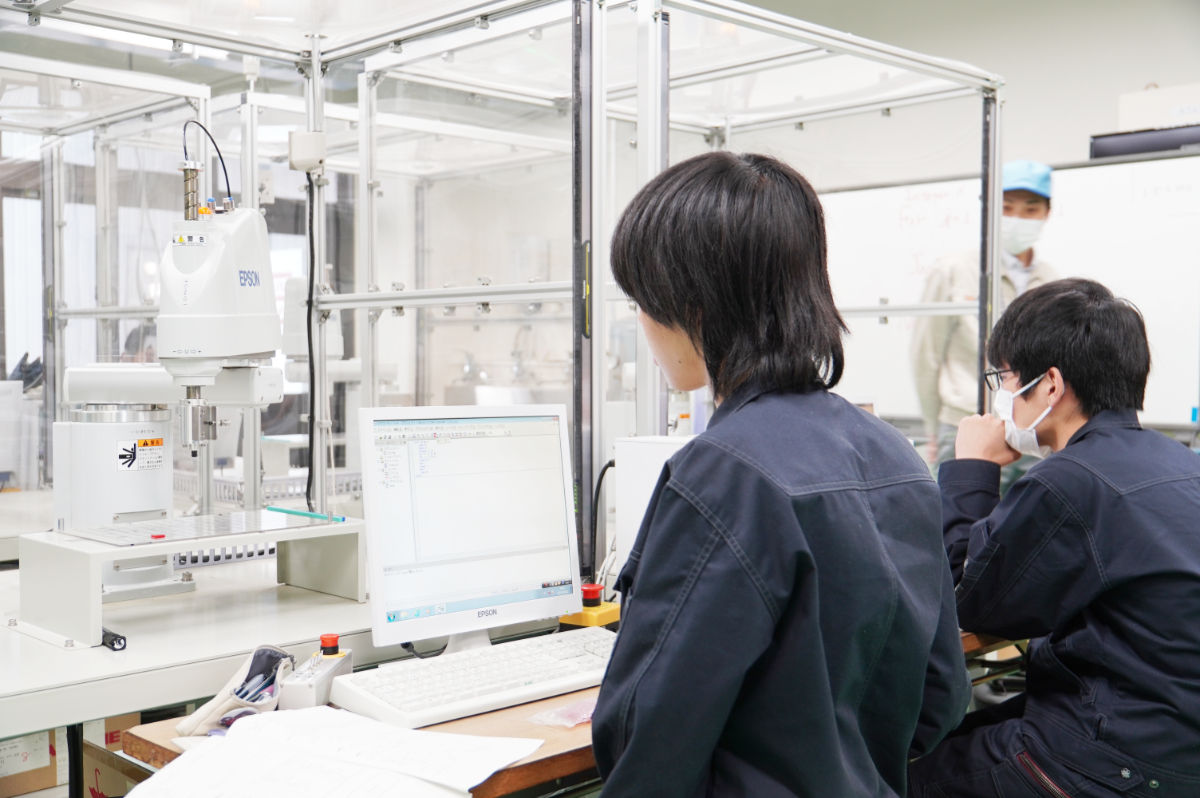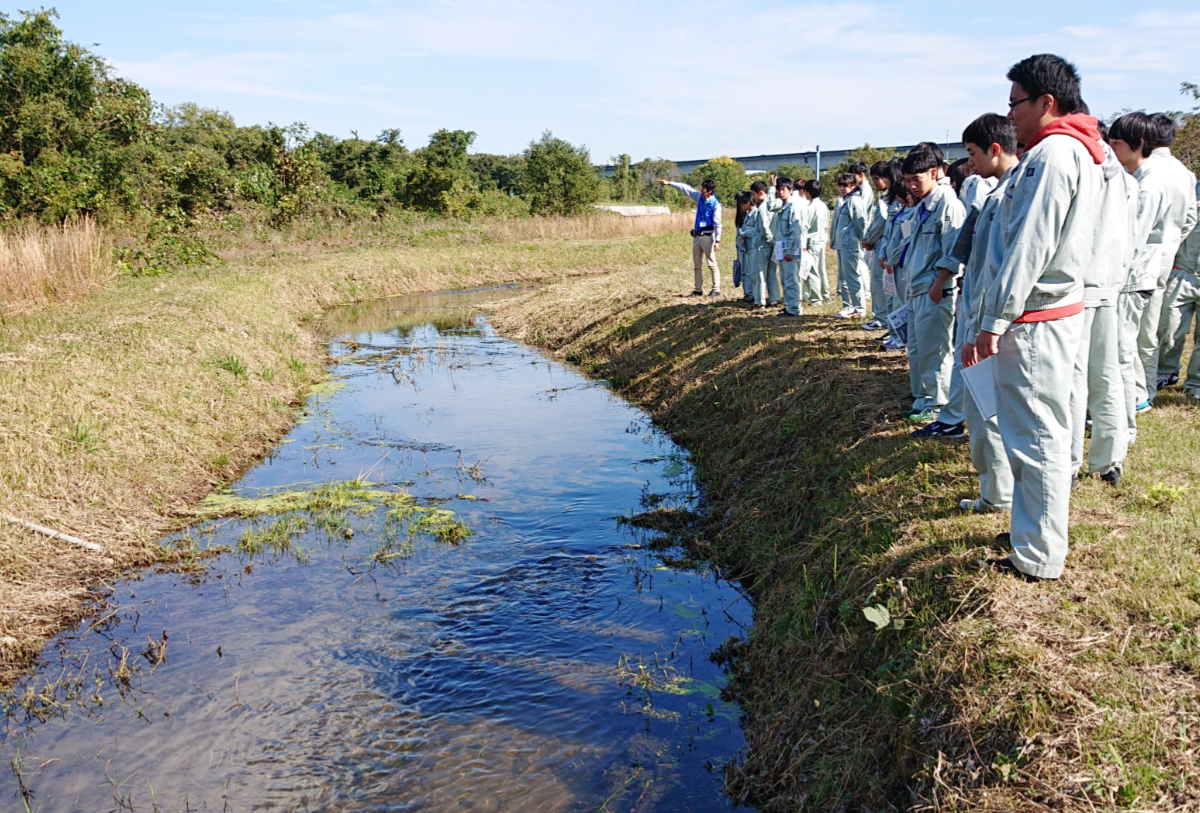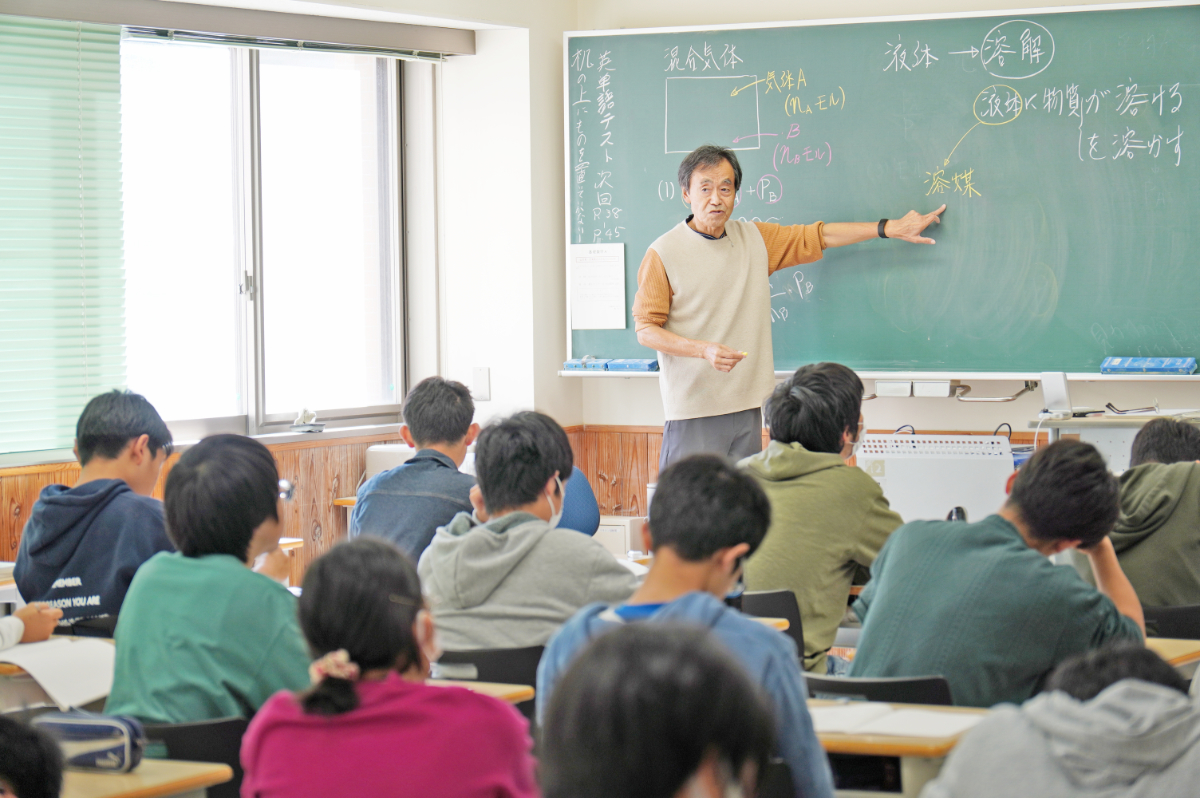Departments
- HOME
- Departments
Department of Engineering
National institute of Technology (KOSEN), Nagano College has been providing practical education for cultivating technical professionals in five departments: Mechanical Engineering, Electrical and Electronic Engineering, Electronics and Control Engineering, Electronics and Computer Science, and Civil Engineering, until fiscal year 2021.
With the diversification of job duties and the need for creative professionals with knowledge of data science to adapt to AI and Society 5.0, the development of global professionals who can work abroad, and the need to understand local issues and utilize learned knowledge to solve them have also become essential in today's industrial world. Furthermore, in recent years, there have been many situations where multiple engineering fields need to be combined to solve problems, which has increased the necessity of cross-disciplinary engineering studies. To meet these diverse demands, the five existing departments have been reorganized into a single "Department of Engineering" starting in fiscal year 2022.
This department offers three courses: Informatics and Electronics, Mechanics and Robotics, and Civil Engineering. Students choose their major course in their second year after learning the basic content of engineering necessary for any field in "Basic Engineering for Monozukuri" during their first year, and through multiple surveys and interviews with faculty members. Therefore, students do not need to decide on their major course at the time of admission, but can choose after learning the basic content thoroughly.
We have a curriculum that enables students to acquire a wide range of knowledge across fields, such as requiring specialized courses in data science and engineering design for all courses, and selecting subjects other than the major course as "minor courses" that are mandatory, in order to cultivate human resources who possess both specialist and generalist knowledge.
Informatics and Electronics course
Informatics and Electronics course aims to nurture professionals in the information and electronics field, which is the backbone of the Society 5.0 era. Students will learn a wide range of subjects, including information fields such as software and information security, as well as electricity and information networks that support daily life, and computer and electronics technology that supports them.
In the second year, students will study basic subjects and experiments/practicals in the information and electricity fields, such as programming languages and electrical circuits. From the third year, students will divide into sub-courses in electricity and information, study specialized curricula for three years, and develop personnel who can work in the fields of electronics, information, communication, and electric power. This course recommends taking various qualification exams and supports students who challenge themselves.

Mechanics and Robotics course
Mechanics and Robotics course combines departments of Mechanical Engineering and Electronic Control Engineering, leveraging the strengths of both to offer a curriculum with a range of elective courses. Our education focuses on developing knowledge and skills in Mechanical Engineering, Control Engineering, and other related fields necessary for designing and developing various types of mechanical systems, such as multifunctional automobiles and robots, in the future.
With a core focus on Mechanical Engineering, our curriculum allows students to acquire fundamental knowledge and machining techniques while also delving deeper into specialized fields of Mechanical Engineering. Alternatively, students can study all three areas of Mechanical Engineering, Electrical and Electronic Engineering, and Information Engineering, to become well-rounded professionals in Mechatronics technology. Through practical experimentation and hands-on training, we aim to cultivate practical engineers with a strong foundation in both theory and application.

Civil Engineering course
Civil Engineering course aims to train practical and creative engineers who can contribute to our safe and culturally enriched lives by social infrastructure development, such as roads, bridges, and water supply and drainage systems, while considering natural and social environmental sustainability. The curriculum includes fundamental subjects such as structure, hydraulics, and soil mechanics, as well as applied subjects such as materials, urban planning, and architecture, and practical courses such as experiments and exercises, providing students with a wide range of knowledge and perspectives to respond to society's needs, including disaster prevention and environmental issues.
The acquisition of qualifications during enrollment is also encouraged. Graduates of this course will be qualified by meeting certain requirements as assistant surveyors, and they can also obtain qualifications to take exams such as First-Class and Second-Class Civil Engineering Works Execution Managing Engineer or Second-Class Architect.

Faculty of Liberal Arts
Faculty of Liberal Arts provides practical liberal arts education for all students to cultivate the foundation for "humanity" necessary for surviving in society−rich education and knowledge, creativity, a vision for foreseeing the future, and the ability to communicate effectively.
In the first year, the "ZUKUDASE seminar" allows students to explore themes of interest and develop their imagination in a small-group seminar format. From the second year onwards, students can develop a global mindset through small-group English conversation classes taught by native speakers, overseas training, and upper-level courses taught in English that include presentation skills. Additionally, the center offers "Nagano Studies" in the upper years, which includes lectures on the history and culture of Nagano Prefecture, as well as the option to participate in winter sports training, promoting education rooted in the local community.
